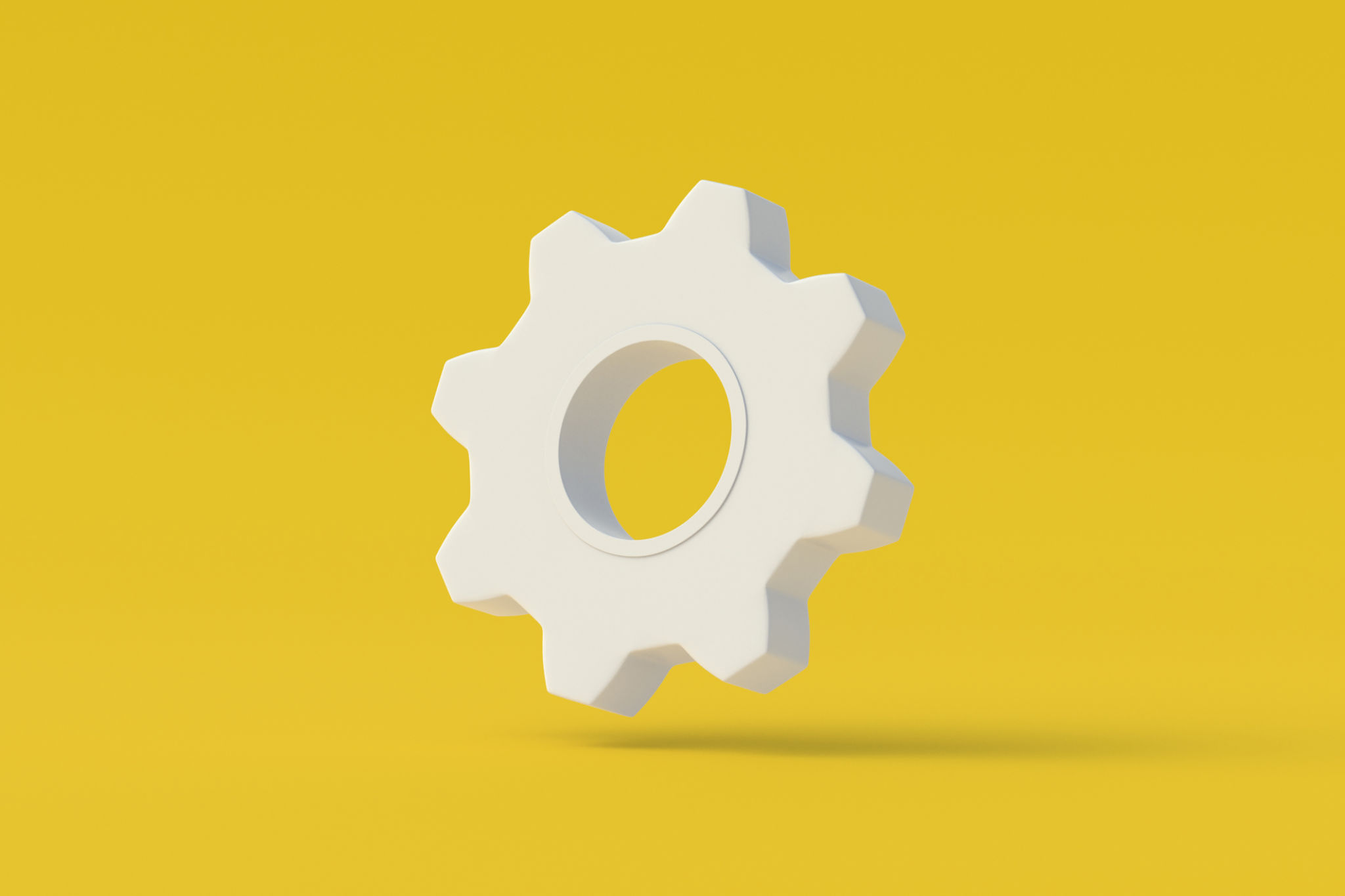The Illusion of Separating Emotion from Reason: Damasio's Challenge to Descartes
You’re having coffee with Alex. After years of false starts, they’ve finally landed something solid: a stable job at a logistics firm, decent pay, health insurance, even a desk with their name on it. It’s the first real foothold they’ve had in adult life. And now, over lukewarm cappuccinos, they’re telling you they’re quitting to launch a luxury mushroom jerky brand. You try to nod supportively while stirring oat milk into your espresso, but your brain screams inwardly. Alex has zero experience in food production, no business plan, and last month, they asked you what a VAT number is. Still, they insist this is their calling. They read a Medium article about functional fungi and now feel a "deep alignment".
Alex is brilliant. They once explained quantum entanglement to a cab driver in a way that made sense. But they’re chronically incapable of assessing risk in real life. Relationships, money, careers, every decision is a beautiful disaster, perfectly rationalized but never rational. You watch them talk themselves into another meticulously reasoned mistake and wonder: how can someone this smart be so bad at deciding how to live?
Sure, you've never done anything like that, right? Nothing that seemed perfectly rational at the time, carefully weighed, maybe even spreadsheet-supported, but then quietly unraveled into bitterness. Realizing in hindsight that it wasn’t logic that steered the wheel but emotion, dressed up in analysis. Don't worry, happens to the best. It’s part of being human, trying to think your way through life, even though it was not designed to run on thought alone. You'll see it countless times: people who are thoughtful, intelligent, even meticulous, but end up making decisions that quietly unravel beneath the surface. And you'll discover that this disconnect between being smart and making good decisions isn't just some random quirk; it actually reveals something fascinating about how your minds really work.

The Book That Changed Everything
Let me introduce you to a book that transformed how we understand the mind: Antonio Damasio's Descartes' Error: Emotion, Reason, and the Human Brain. Published back in 1994, this isn't just another neuroscience text. It’s a perspective that flipped centuries of thinking on its head. And Damasio isn't your average researcher. As a neurologist who spent years studying patients with brain injuries, he noticed something that didn't fit with traditional theories: people with damage to emotional centers of their brains weren't becoming super-rational thinkers. They were becoming completely unable to make good decisions, even though their IQ scores remained intact. The book makes you understand why trying to be "purely logical" might not turn out as expected. It makes you see why you need your emotions to make reasonable decisions. How emotions are not so much annoying distractions they seem to be, but essential guides, without which your reasoning falls apart. For the science of emotions, Damasio's work is the missing piece that connects the dots between emotional health and a good life.
The Mind-Body Split That Fooled Us All and Why Descartes Got It Wrong
To appreciate what makes Damasio's insights so revolutionary, we need to talk about René Descartes. You might remember him. He’s the 17th-century philosopher who gave us that famous line "I think, therefore I am." But he also gave us something more problematic: the idea that mind and body are separate entities. This became the foundation for the belief that pure thought, untainted by sensation, emotion, or physical needs, is the highest form of reason. This split is so deeply embedded in our thinking that you probably don't even notice it. It's there when someone tells you "mind over matter", as if your body should stay out of the way while your brain handles the real decisions. But it's also associated with the ideal of the cool, calculating decision-maker who never lets feelings cloud their judgment. It's there in how you praise "keeping your head" in a crisis. The separation of mind from body laid the groundwork for separating reason from emotion. If the mind is a pure, abstract machine, then emotions must be distortions, interference from the animal parts of your self. That’s the illusion Damasio set out to dismantle.
It all began with Elliot, one of Damasio’s patients. Elliot had a benign brain tumor that was causing chronic headaches and problems with focus, so surgery was recommended. The tumor was successfully removed, but the procedure caused unintended damage to a region of his brain called the ventromedial prefrontal cortex. Consequently, Elliott's ability to function in daily life collapsed. Before the surgery, Elliot had been thriving, successful in business, and steady in his personal life. After the surgery, he lost his job, went through a divorce, and made a string of poor decisions. But his intelligence wasn’t changed; his IQ remained intact, and he could discuss abstract topics with ease. What was going on? When Damasio dug deeper, he realized something profound: Elliot couldn't feel emotions. So, he would analyze options endlessly but would no sense of which ones mattered or which deserved priority. Without emotional guidance, he was lost in a sea of equally valid logical choices.
You may have experienced a milder version of this. Think about a time when you made a pros and cons list for a big decision but still felt stuck, even though your careful reasoning seemed to point to a clear winner. Without emotional signaling to highlight what matters to you, reason alone becomes paralyzed. Logic can tell you how to get what you want, but it can't tell you what to want in the first place.

Emotions as Your Decision-Making Sidekick
Elliot's case led Damasio to develop what he calls the "somatic marker hypothesis". It’s one of those brilliant scientific ideas that can forever change how your understanding of yourself. Here's what happens in everyday life: When you're about to make a decision, your body often reacts before your conscious mind catches up. You may get a knot in your stomach, your heart rate changes slightly, or you feel a subtle sense of dread or excitement. These physical sensations, the somatic markers, are your emotional system flagging potentially bad or good outcomes based on your past experiences or inborn instinc. Think of the last time you walked into a room and immediately felt something was "off", even though you couldn't put your finger on why. That wasn't just a random bug; it was your emotional system analyzing dozens of subtle cues faster than your conscious mind could even notice them. It's when stuff looks perfect on paper, but something just feels wrong. Or the opposite. When you ignore that feeling in favor of "being logical," you might regret it later when the problems your body somehow anticipated finally surface. Or not.
In any case, rather than seeing emotions as troublemakers that mess up your rational thinking, Damasio suggests they're actually essential partners that make good decisions possible. Without emotional markers narrowing down your options, decision-making becomes painfully inefficient. Imagine going to a restaurant with a 50-page menu and having to carefully analyze every single dish by nutritional values, price-to-portion ratios, and ingredient quality without any sense of what you're in the mood for. You’d still be sitting there at closing time. Your emotions act like a spotlight, highlighting the options that deserve your attention and dimming the rest. They don't replace careful analysis; they make it possible by focusing on where it matters.
Now, if you know me, you know I'm not claiming emotions are flawless guides, or even particularly reliable ones in a lot of situations. Emotional reactions can misfire big time or pull you in directions that don’t serve you at all. Avoiding necessary conversations because of discomfort. Staying in an unfulfilling job far longer than you should because imagining the uncertainty of quitting ... just no . Postponing a medical check-up for months because you’re afraid of what they might find, even though you know the delay will only make it worse. These are classic emotional fails. Not necessarily wild outbursts, but quiet nudges that steer your life in the wrong direction. But the solution isn't to ignore emotions; it's to refine them so they align better with what you really want.

Finding Balance: Your Thinking Isn't Just in Your Head
One of Damasio's most clever insights is that your body isn't just a vessel for your brain; it's an active participant in the thinking process. When you weigh different options, your brain simulates how each choice might feel, creating subtle physical changes throughout your body. These changes generate real sensations that influence your decisions. Your gut literally has a say in your choices. This somehow demolishes the idea of a disembodied rational thought. There is no pure reasoning happening in isolation from your physical self. Your thinking is thoroughly embodied, with systems that regulate your body, emotions, and feelings working as essential players in even your most abstract reasoning. Whenever you have a "gut feeling" about something, it's not just a primitive reaction to override with logic. It's your entire emotional system, built from evolution and personal experience offering valuable information that your conscious analysis might miss.
To be clear, Damasio isn't saying (and neither am I) you should "follow your feelings" without thinking. What his work points to is the need for integration, letting emotional intelligence and rational analysis work together as they were designed to. When your emotional system is well-calibrated to your goals and values, it doesn't interfere with reason; it empowers it. The ideal isn't emotion-free thinking (which turns out to be impossible anyway) but emotional signaling that accurately reflect what matters to you, working in harmony with your analytical abilities. This realization can be transformative in understanding emotional health. It's not about controlling or suppressing emotions to think more rationally; it's about developing an emotional system that generates helpful signals aligned with your real goals, rather than just reacting based on evolutionary patterns that might not serve you.
What This Means for Your Daily Life
So, how do you apply these insights? Instead of trying to silence emotions to think more clearly, try:
- Getting curious about your feelings: When you feel strongly about a situation, ask yourself what information that emotion might contain. The nervousness before a presentation isn't just an inconvenience; it's highlighting what matters to you about the outcome.
- Updating your emotional responses: Through reflection and engineering new experiences, you can gradually refine your emotional reactions. Over time, you'll notice that emotions that once led you astray now serve as more reliable guides because you've taken the time and effort to understand and recalibrate them. That nervousness before the presentation can now help you put in extra focus and energy.
- Listening to both head and body: For important decisions, give yourself time to both analyze the situation carefully and tune into how different options feel physically. Neither alone gives you the complete picture.
- Understanding your patterns: When emotions seem to push you in unhelpful directions, get curious about their origins rather than just blindly fighting against them. It's easier to fix what you know and understand.
Treating your emotional responses not as interruptions or random annoyances but as information and intentions changes your relationship with them. Sometimes the system needs fine-tuning, like adjusting the settings on a sophisticated instrument, rather than being ignored or suppressed. But sometimes, you do have to tell it to just zip it.

Beyond the Old Divide
What Damasio has given us is a fundamentally different way of understanding how your mental functioning works. By showing how emotions are essential to reasoning, he's helping heal the artificial split between thinking and feeling that has dominated Western thought for centuries. The reconnection of mind and body isn't just academic, but profoundly practical. It offers a more accurate and helpful framework for understanding how emotional systems function and for addressing the challenges you face in managing your emotions day to day.
When you find yourself torn between what you "feel" and what you "think," this division itself might be an illusion. Both processes are aspects of a single, integrated system working to navigate the complexity of your life. Your emotions aren't visitors in your rational mind, they're essential components without which the whole system breaks down. You'll come to see your emotional responses not as distractions from clear thinking but as sophisticated instruments shaped by evolution and experience to guide your behavior. They often do need calibration, but they're never irrelevant.
Like a river flowing through a landscape, emotions don't simply disrupt the terrain of reason; they shape it, define it, and make it navigable. Without the current, you aren't left with pristine logical terrain; you're left with an arid plain where nothing grows and no movement happens. In challenging Descartes' error, Damasio hasn't just corrected an old mistake; he's opened the door to a more complete understanding of what it means to be human. Not divided between mind and body, reason and emotion, but integrated into a single, remarkable system evolved to navigate the beautiful complexity of being alive.

If this sparked something for you, Descartes’ Error is worth reading in full. It’s not a quick read, but it’s a rewarding one. You can find it on Amazon: https://amzn.to/4kJLWHV
